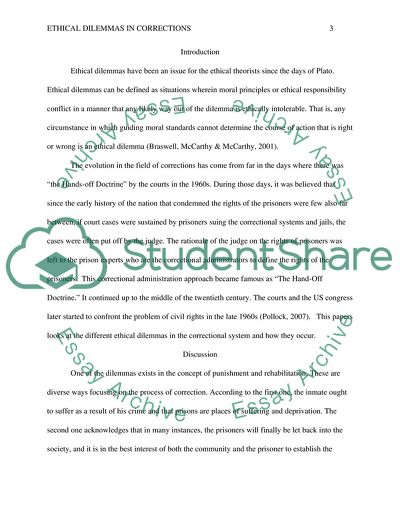Cite this document
(Ethical Dilemmas in the Correctional System Essay Example | Topics and Well Written Essays - 1500 words, n.d.)
Ethical Dilemmas in the Correctional System Essay Example | Topics and Well Written Essays - 1500 words. https://studentshare.org/law/1820442-ethical-dilemmas-in-corrections
Ethical Dilemmas in the Correctional System Essay Example | Topics and Well Written Essays - 1500 words. https://studentshare.org/law/1820442-ethical-dilemmas-in-corrections
(Ethical Dilemmas in the Correctional System Essay Example | Topics and Well Written Essays - 1500 Words)
Ethical Dilemmas in the Correctional System Essay Example | Topics and Well Written Essays - 1500 Words. https://studentshare.org/law/1820442-ethical-dilemmas-in-corrections.
Ethical Dilemmas in the Correctional System Essay Example | Topics and Well Written Essays - 1500 Words. https://studentshare.org/law/1820442-ethical-dilemmas-in-corrections.
“Ethical Dilemmas in the Correctional System Essay Example | Topics and Well Written Essays - 1500 Words”. https://studentshare.org/law/1820442-ethical-dilemmas-in-corrections.


